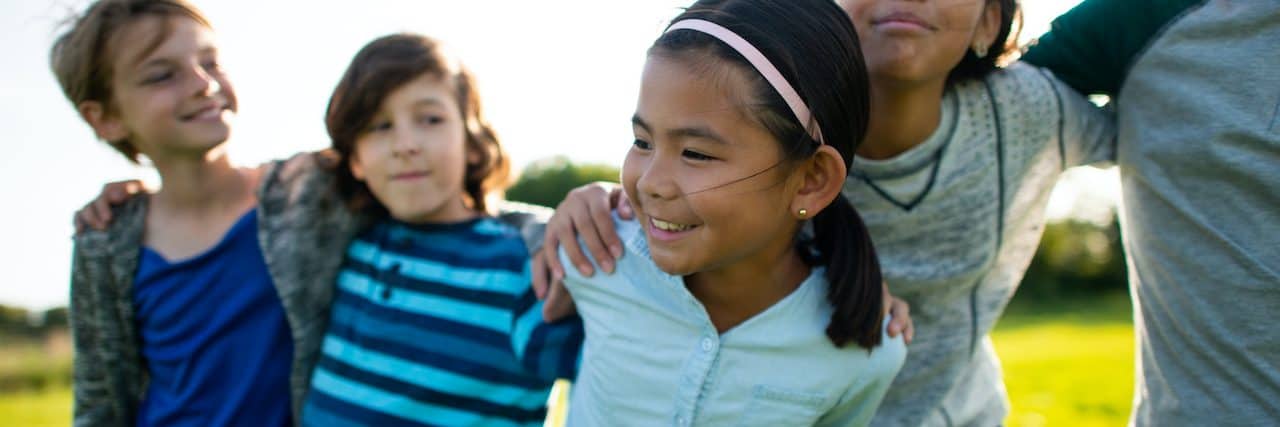If there is anything the last couple of years has taught us, it is that life is not easy, it is not fair, and could tip anyone over the edge if we are not careful. I am sure if we all think back and reflect on our experiences as a child, we can remember the first time someone made fun of us, made us feel inferior, small, or worthless. I know for me, I wish that my younger self was taught the skills to rise above bullies, express her emotions in a healthy manner, and most importantly understand simple coping skills that I could have used at a young age when I started to feel uneasy.
Of course, you will not expect a child at the age of 8 years old to be a pro at handling their emotions, it is a skill that would have to be taught to children at a young age and molded over time. However, this whole idea of instilling early coping skills into youth at a young age comes from SEL (Social-Emotional Learning). Social-Emotional Learning is just as important to teach our next generation as much as it is to teach math or reading, especially in our society’s current climate.
Timothy Dohrer, director of teacher leadership at Northwestern University, says “If you asked 100 C.E.O.s what skills they want in a new hire, the top five skills are going to be about social-emotional learning — not algebra.”
According to the University of British Columbia, SEL has been increasingly recognized as playing a critical role in the promotion of positive mental health and the prevention of mental health disorders among children and youth.
Social-Emotional Learning can promote positive mental health in four ways:
1. Students learn to manage their own emotions and behaviors.
When kids from K-12 learn to recognize the emotions/feelings inside them, they are more likely to learn how to not only be aware of the emotions they are feeling but develop coping skills to prevent getting overwhelmed by what is happening inside of them. Which helps them deal with strong feelings and impulsive behaviors. For example, this can look like learning how to stop and take a breather and assess their triggers in the moment instead of immediately reacting.
2. Students learn how to show empathy to others.
When youth learn about their own individual triggers and emotions they will gradually learn how to recognize their peers emotions and perspectives. This skill helps them empathize and show compassion no matter who they are or what their background is. This will improve a child’s ability to effectively respond to an emotional experience. When a child learns how to show empathy, it increases their chances of building strong, healthy relationships with their peers and authority figures.
3. Students learn to solve problems effectively.
We live in a society that pushes its own agenda of how beauty, success, and happiness looks like, which can cause a lot of stress on an individual. With the many expectations that can be put on us from our peers, parents etc, it is important that the next generation learns effective ways to solve problems that many arise as they grow and navigate through life’s challenges. Through making social and emotional learning a priority, children learn to solve problems in peaceful ways. This skill helps them get along with other kids and really learn how to communicate their own needs to their support system.
4. Students learn to maintain healthy relationships.
Finally, one of the most important skills that SEL provides, in which it improves youth mental health, is teaching kids how to maintain healthy relationships. We are not created to go through this life on our own. Therefore, it is crucial that our children learn who to identify as their support system and how to maintain those relationships.
Anyone can have moments when they struggle with their mental health, although to continue to show the next generation that they do not have to navigate those struggles on their own makes a huge difference.
Sara Potler LaHayne is the founder & CEO of the organization Move This World. She also leads a podcast called “Conversations in Social Emotional Learning,” which is in its 4th season. Move This World is a social-emotional learning program that provides Pre K-12 students, educators, and families with multimedia experiences empowering students to navigate the rapidly changing realities of their world – both in the classroom and throughout their lives. SEL programs, like MTW ( Move This World) which is rooted in creative arts therapy and positive psychology can evidently spark movement, connection, positive mental health and social-emotional development.
Getty image by FatCamera

